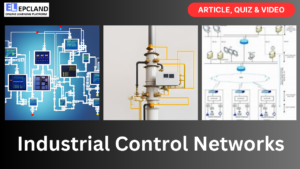Introduction
Kick-off meetings serve as the foundation for project success, playing a pivotal role in aligning stakeholders, defining objectives, and setting the tone for collaboration. This comprehensive guide delves into the significance of kick-off meetings, strategies to conduct them effectively, and answers to common questions surrounding this crucial project initiation step.
Table of Contents
Don’t miss the Complete Course on Piping Engineering: Check Now
By EPCLand.com
Why Kick-off Meetings Matter
Kick-off meetings are more than just routine gatherings; they are a critical milestone in any project’s journey. These meetings mark the official beginning of a project, providing a platform for stakeholders to come together, share expectations, and lay the groundwork for successful execution.
Setting the Stage for Alignment
In this section, we’ll explore how kick-off meetings foster alignment among various stakeholders, ensuring that everyone is on the same page regarding project objectives, deliverables, and timelines.
Defining Roles and Responsibilities
Discover how kick-off meetings are instrumental in clarifying roles and responsibilities. We’ll discuss how assigning clear roles during these meetings can help prevent confusion and streamline project progress.
Establishing Project Objectives and Scope
Explore the process of defining project objectives and scope during kick-off meetings. We’ll highlight the importance of outlining project boundaries and expectations right from the start.
Key Elements of Effective Kick-off Meetings
Conducting a successful kick-off meeting requires careful planning and execution. In this section, we’ll delve into the key elements that contribute to the effectiveness of these meetings.
Preparation: The Foundation of Success
Learn about the preparatory steps that lead to a productive kick-off meeting. From creating agendas to identifying attendees, thorough preparation is essential.
Agenda Design: What to Include
Discover the elements that make up a comprehensive kick-off meeting agenda. We’ll discuss topics such as project overview, objectives, roles, timelines, and communication channels.
Engagement and Participation
Explore strategies to encourage engagement and participation from attendees. This section covers techniques to foster open discussions and gather valuable insights.
Managing Expectations
Learn how to manage expectations during kick-off meetings. We’ll explore ways to address concerns, address potential challenges, and align everyone’s understanding of the project’s feasibility.
Initiating the Project: Collaborative Kick-off Discussions
Conducting a kick-off meeting is a pivotal step in project initiation, fostering effective communication and alignment among your team members. However, it’s equally crucial to establish a strong foundation with your client before engaging your team. By starting with a meeting exclusively with your client, you can grasp their expectations and align the project with their vision. This also allows you to validate and fine-tune your strategic plan before progressing further. Thus, the sequence of meetings should prioritize a conversation with the client followed by involving their team.
Engaging with the Client: A Prerequisite for Success
Before embarking on any collaborative efforts, prioritize a preliminary discussion with your client. This pre-work meeting provides a platform to understand their project expectations, alignment goals, and preferred project trajectory. Such an upfront engagement sets the tone for harmonious collaboration and robust business relations throughout the project lifecycle. Notably, this initial conversation should exclusively involve you and your client. This approach ensures utmost clarity and simplification in conveying decisions, making the final resolution crystal clear.
Client and Team Convergence: Streamlining Communication
Following this, the subsequent step entails arranging a follow-up meeting involving both your client and their team members. This meeting aims to share the project’s raw details, creating an informed awareness among stakeholders. It’s recommended to schedule this meeting once you’ve solidified the project plan in coordination with your client. By taking this approach, you proactively mitigate the likelihood of last-minute rejections, unsolicited suggestions, or unforeseen demands.
In a nutshell, the process begins with a client-centric interaction, facilitating an intricate understanding of their aspirations and requirements. This sets the stage for aligning your strategic plan and project trajectory accordingly. Subsequently, transitioning into a collaborative setting involving both the client and their team ensures seamless information dissemination and minimizes deviations from the established project path. This orchestrated approach not only promotes clarity but also enhances the overall efficiency and effectiveness of project execution.
Don’t miss the Complete Course on Piping Engineering: Check Now
By EPCLand.com
Crafting a Successful Kick-off Meeting Strategy
Planning a kick-off meeting demands careful consideration, especially when pondering over the question that resonates in everyone’s mind: How can one orchestrate an effective kick-off meeting with both clients and team members? The journey to a successful project launch begins with a well-structured kick-off meeting, a compass guiding you towards project triumph. To pave this path, here are several essential steps to master the art of initiating a kick-off meeting.
Inviting Team Members to the Kick-off Meeting
Initiating a kick-off meeting with your project team necessitates proper invitations extended through phone calls, official emails, or text messages. The mode of communication is at your discretion, tailored to your preferences. Elevate the team’s enthusiasm by infusing enticing lines that ignite their anticipation, kindling eagerness to contribute their best ideas for crafting an effective project plan.
Following the kick-off meeting with your team, proceed to acquaint the client’s team with the project plan, ensuring cohesive understanding.
Setting the Meeting Agenda
A comprehensive meeting agenda, meticulously laid out in step-by-step format, is paramount to optimize time and resources. A predefined agenda empowers meaningful discussions, ensuring that your meeting isn’t a squandered endeavor. Mastery over the meeting’s agenda provides confidence when sharing it with either your client or team.
To enhance clarity and streamline discussions, consider employing Word documents or visual aids to highlight and elucidate the points for sharing and discussion.
Defining the Project’s Mission Statement or Vision
Goals without planning, unflinching determination, and sustained motivation are but fleeting dreams. Craft a concise, inspiring mission statement that resonates with your objectives and serves as a daily reminder. This declaration, simple yet potent, fuels your commitment and maintains focus throughout the project’s lifecycle. Extend this approach to encompass the entire team and stakeholders, fostering a shared mission that guides your collective efforts.
Addressing Team Member Confusion
A successful kick-off meeting is incomplete without an open forum for discussion, enabling team members to voice queries, uncertainties, and thoughts. Embrace the ethos of valuing diverse perspectives, establishing rapport, and formulating a robust plan fortified by unity and collaborative insight.
Developing a Comprehensive Project Plan
A well-crafted kick-off meeting should extend beyond dialogue and discussions, encompassing the formulation of a detailed project plan. This plan serves as the roadmap guiding you and your team towards the project’s culmination. Organization and planning are imperative for success, fostering a structured approach towards goal achievement.
Comprehensive to-do lists for each team member, supplemented by individual lists, bolster the project’s efficiency. Employ Gantt charts for both individual and team tasks, ensuring timely execution and tracking of progress, thereby identifying any bottlenecks or gaps.
Assigning Roles to Team Members
The uniqueness of your team members, characterized by their diverse skills and expertise, warrants the allocation of roles tailored to their strengths. Group discussions organized in distinct slots can elucidate each member’s role in the project’s fruition. A cohesive role allocation strategy nurtures collaboration and consistency throughout the project’s lifecycle.
Establishing a Progress Tracking Mechanism
While strategic planning and team guidance set the stage for results, obtaining the exact outcomes can be challenging. A progress tracking mechanism, anchored by Gantt charts, not only aids task completion but also delineates the frequency of specific tasks per week. Through consistent monitoring, any issues or inadequacies in the project’s progression can be promptly addressed.
Formulating a Risk Management Plan
Never overlook the importance of evaluating project risks and devising strategies to mitigate potential disasters. For industrial projects, prioritizing risk assessment is vital. Assemble an adept risk management team to scrutinize and counter potential challenges before they escalate into larger predicaments.
Documenting the Kick-off Meeting
When orchestrating a project’s kick-off meeting and navigating a sequence of steps towards success, maintaining a comprehensive record of each action undertaken during the meeting is invaluable. These records serve as a retrospective tool, accessible for reference when required.
In essence, steering a successful kick-off meeting entails embracing the journey’s inception with strategic insight. Inviting your team, setting a clear agenda, crafting a compelling mission statement, fostering discussions, developing a robust plan, assigning roles, and tracking progress culminate in a comprehensive approach. The orchestration of a kick-off meeting embodies the foundation for your project’s realization, and meticulous planning ensures a seamless trajectory towards success.
Don’t miss the Complete Course on Piping Engineering: Check Now
By EPCLand.com
Common FAQs about Kick-off Meetings
Q1: Who should attend a kick-off meeting? A1: Kick-off meetings typically involve project stakeholders, team members, and relevant decision-makers.
Q2: What’s the ideal duration for a kick-off meeting? A2: Kick-off meetings can vary in duration, but they’re usually kept within 1 to 2 hours to maintain engagement.
Q3: What should be included in the kick-off meeting agenda? A3: The agenda should cover project overview, objectives, roles, expectations, timelines, and communication channels.
Q4: How do kick-off meetings contribute to project success? A4: Kick-off meetings establish alignment, clarify roles, define objectives, and set the tone for effective collaboration, which are all critical for project success.
Q5: How often should kick-off meetings be conducted? A5: Kick-off meetings are typically held at the start of a project or a major project phase. The frequency depends on the project’s complexity and timeline.
Conclusion
Kick-off meetings are the cornerstone of successful project execution. By aligning stakeholders, clarifying roles, and defining project objectives, these meetings set the stage for efficient collaboration and positive outcomes. Implementing effective strategies for planning and executing kick-off meetings enhances project communication, mitigates risks, and paves the way for achieving project milestones with confidence.
Recommended courses (Published on EPCLand)
- Basics of Piping Engineering
- Piping Layout Engineering
- Piping Material Engineering
- Piping Stress Analysis
- Complete Course on Piping Engineering
- Material Requisitions
- Piping Material Specifications
- Valve Material Specifications
Don’t miss the published articles on following:
Related Video
Attempt Quiz
Question 1:
What is a kick-off meeting?
Explanation: A kick-off meeting is a meeting held at the beginning of a project or initiative to formally initiate it, align team members, and set expectations.
Question 2:
What is a common objective of a kick-off meeting?
Explanation: A common objective of a kick-off meeting is to define the project scope and objectives, ensuring that all team members understand the goals and expectations.
Question 3:
Who typically leads a kick-off meeting?
Explanation: A kick-off meeting is typically led by the project sponsor or manager, as they have a clear understanding of the project’s objectives and can provide guidance.
Question 4:
What is the importance of a kick-off meeting?
Explanation: The importance of a kick-off meeting lies in setting the tone for the project, aligning expectations, clarifying roles, and ensuring that team members understand their responsibilities and the project’s goals.
Question 5:
What type of information is typically covered in a kick-off meeting?
Explanation: In a kick-off meeting, the focus is on discussing important project-related information, including the project timeline, objectives, roles, expectations, and any necessary logistics.



